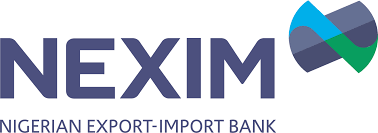The Nigeria Export Import Bank (NEXIM Bank) says it is taking further step to bridge infrastructure gap to promote trade connectivity and spur Nigeria’s regional and global trade competitiveness.
Mr Abba Bello, the Managing Director of NEXIM said this in a statement issued by the bank in Abuja.
Bello said this while signing a Memorandum of Understanding between the bank, National Inland Waterways Authority (NIWA) and Sealink Promotional Company Ltd in Abuja.
According to him, the collaboration is a novel public-private partnership framework that is primarily designed to attract private sector investments under government agencies facilitative support at no cost to government.
He said the MoU was a significant milestone that would be catalytic to the realisation of one of the priority projects under the ECOWAS Community Development Programmes.
Bello said that NEXIM’s strategic interest in the Regional Sealink Project was to promote and diversify exports and enhance trade connectivity in line with government’s objective to diversify the economy.
He said the bridging of maritime infrastructure gap would significantly enhance exports of bulk solid minerals and the Gross Domestic Product (GDP) contribution of both shipping and solid minerals sectors.
He restated that the effective implementation of the Sealink project and the safe utilisation of the inland waterways would no doubt bridge logistics gaps in the country.
Bello said that this would help attract and facilitate investment flows for sectors and contribute to the realisation of one of the broad strategic objectives of ERGP, “which is building a globally competitive economy”.
The NEXIM boss said that it would also contribute to improving Nigeria’s current World Bank ease of doing business and Logistics Performance Index (LPI) rankings.
“In value terms, it is projected that the signing of this MoU will promote waterway operations for hinterland, transit and coastal trade, especially for bulk cargo.
“It is projected that this development will enhance non-oil exports annual revenue receipts to between 500 million dollars and 1.2 billion dollars annually on bulk solid minerals exports.’’
He expressed appreciation to the various stakeholders for their collaborative partnership and grant funding supports for the initiative.
“We believe with continued collaborative partnership and strong commitment, we shall achieve the strategic objectives of this MoU to foster trade for the general prosperity and development of Nigeria.
“We therefore look forward to the next collective steps toward attaining our common goal to improve waterways operations and the commencement of commercial operations of the Regional Sealink Project,’’ Bello added.
The Managing Director, NIWA, Mr Olorunnimbe Mamora, said the authority would collaborate with the organisations to harness the untapped waterways resources that would add to the nation’s GDP in no small measure.
Mamora said: “NIWA’s endorsement of this MoU is an eloquent testimony of the viability of the Inland waterway transportation network in Nigeria.
“This marks another major step in the journey to reverse the dependence of our economy on oil and to open up the vast untapped opportunities that the inland waterways can offer.
“The realisation of inland waterways transportation will not only ensure safer roads but ensure the huge sums spent on road maintenance is diverted to other areas of needs in the economy.’’
The Chairperson, Sealink Implementation Committee, Mrs Dabney Shallholma, commended the management of NEXIM and NIWA in its effort toward the Sealink project.
Shallholma said NEXIM’s developmental, facilitative and supportive roles in the Sealink Project were quite exemplary and typical of the roles of Export Credit Agencies all over the world.
According to her, the Sealink is a public-private-partnership initiative by NEXIM on the prompting of the Organised Private Sector and NACCIMA / MAN Export Group.
“Sealink is fundamentally conceptualised and designed to bridge maritime transport infrastructure gap, amongst ECOWAS and CEMAC regions, as well as promote inland waterways operations towards facilitating regional integration and bulk cargo trade.
“It is also intended to facilitate reduction in logistics cost and the mitigating of unnecessary transit arrangements on regional trade.
“The time has come for Nigeria to be bullish in its non-oil export trade to diversify the economy.
“On the part of Sealink, let me assure you all, that the Sealink Consortium will be a key driver in both the national and the regional trade and logistics value chain.”


